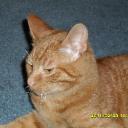Yahoo Answers is shutting down on May 4th, 2021 (Eastern Time) and the Yahoo Answers website is now in read-only mode. There will be no changes to other Yahoo properties or services, or your Yahoo account. You can find more information about the Yahoo Answers shutdown and how to download your data on this help page.
Trending News
Confusion in English grammar.?
What is the difference between verb and noun.
I know that Noun is a particular person place name etc.
Verb is an action.
But i have came across many words in sentences which looks like a verb but when i search them they are nouns. Isn't "Dancing" suppose to be a verb ? It is an action right ? But when I googled it says that it is a noun. And when I googled "Dance" it say that it is a verb, how is that possible ?
Can you please explain ? What is the difference.
Thanks in advance.
8 Answers
- BazzaLv 77 years agoFavorite Answer
"But I have COME across many words in sentences THAT look like VERBS…"
The verb is 'to dance'. Any verb can be changed into a VERBAL NOUN (called a gerund) by adding -ing.
"We danced all night." (verb)
compare
"A guide to the types of dancing you can try." (gerund - here, 'dancing' is a noun)
There are so many different styles of dancing, you're sure to find one that suits you."
Google:
grammar gerunds
……...and you will find a lot more explanation.
- quatt47Lv 77 years ago
A noun is an object or thing, a verb is a doing word.
Dancing is a noun when used this way:-
the activity of dancing for pleasure or in order to entertain others.
"there will be folk music, singing, and dancing"
But it's a verb like:-
'I am dancing.'
Some words can be both nouns and verbs. For example 'The School Dance is next Saturday.' Here Dance is a noun, but 'When I am there I am going to dance.' and here it is a verb. If you can preceded the word with 'to' then it is most likely a verb (Except when 'to' is used in' I am going to bed.' but if you can say things like:-
To run, to play, to sleep, to sing then they all denote verbs.
- MichaelLv 57 years ago
You'll find out that many words in the English language can be used in many different ways. Example: the word surmise can be used be used as a noun or a verb, depending on where it's appropriate.
I'll give you a few examples with the word I used, "surmise".
I surmise (using it as a verb) that there are many more universes than the one we exist in
My surmises (using it as a noun) are that there are many more universes than the one we exist in.
But to get back to what you were saying, yes, dancing is a verb, but the "ing" at the end makes it a present tense, so really dance would the verb.
However, the only way I could you using "dancing" as a noun is only if it was used like this: "The word dancing is used one of the most used words in America". That statement may not be true, but it's still being used as noun.
- BarbaraLv 77 years ago
Many verbs can also be nouns; dancing is one of them.
Here dancing is a verb: We were dancing all night.
Here it's a noun: Dancing is a great form of exercise.
Here walking is a verb: We are walking into town to meet them.
Here it's a noun: These days, walking the children to school is the only exercise I get.
- 7 years ago
Dancing and dance are both verbs. However, it depends how 'dancing' is used in a sentence. For example, if you say: I was dancing all night - this is a verb. If you say: I went to watch the dancing - this is a noun as it is the object of the sentence rather than the doing word which would here be 'watch'.
- fcas80Lv 77 years ago
Some words can be used both as nouns and verbs. It depends how they are used in a sentence. How about this one: Dancing is fun. Here dancing is the noun and is is the verb.
- SebastianSLv 77 years ago
First of all, it is "I have come across" -- "come" is the form the verb To Come takes with the perfect tenses >> "I have come to see you." "She had come across town just to check on me."
OK, so here is the deal with verbs and nouns.
A verb in its non-finite form can function as a noun. Simply put, if you add "ing" to the end of a verb, it can function as a noun. This is called a gerund:
"I like his singing."
"We were annoyed by their playing."
"She was not impressed with his dancing."
Note that all those words ending in "ing" are nouns, thus the use of the possessive pronouns.
- 7 years ago
Please read this http://www.tutorialpoint.org/EnglishGrammar/Partso... for noun
and read http://www.tutorialpoint.org/EnglishGrammar/Partso...





